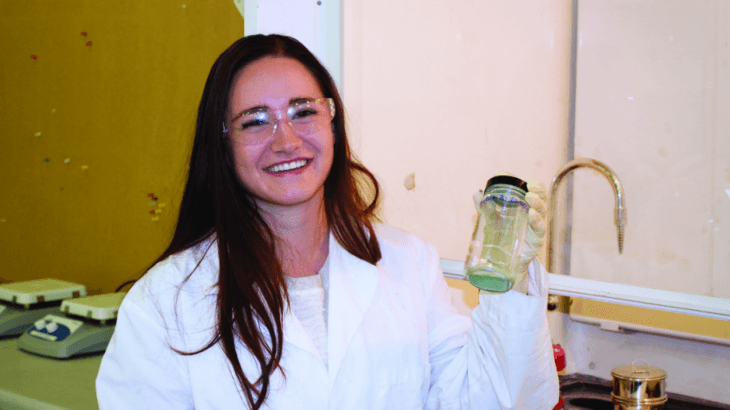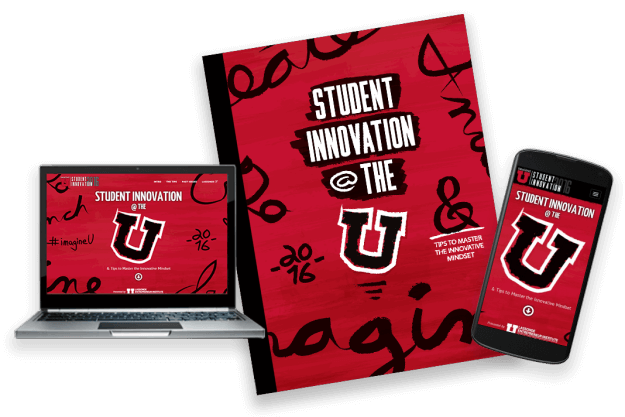Chemical engineering student McKenna Buck works with one of the U’s newest faculty, Dolly Chitta, developing a super-efficient catalytic process designed to “reduce the carbon footprint,” Buck said. Describing the potential impact of the catalyst, she added, “It’s renewable, not like oil, which we will run out of one day.” The catalyst is a chemical, designed to combine with regrowable biomass, like algae, in a method that creates a synthetic lubricant capable of replacing those made at petroleum plants, where fracking is increasingly common. Summarizing, Buck said, “Oil uses lots of energy, affecting the environment, giving off greenhouse gases, the things that affect our air, and that’s bad.” Now in the trial phase, this catalyst could reduce the amount of energy required to produce industrial lubricants by decreasing the number of production steps to one. “I want to change the world in a good way,” Buck said.

Catalyst for a Cleaner World
Find this article and a lot more in the 2016 “Student Innovation @ the U” report. The publication is presented by the Lassonde Entrepreneur Institute to celebrate student innovators, change-makers and entrepreneurs.



